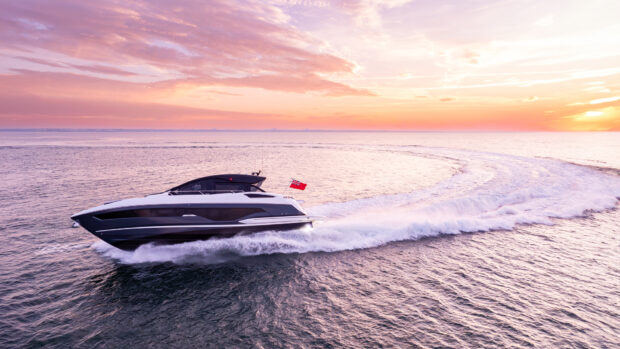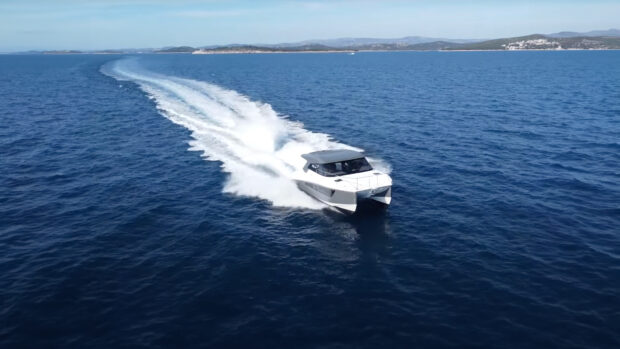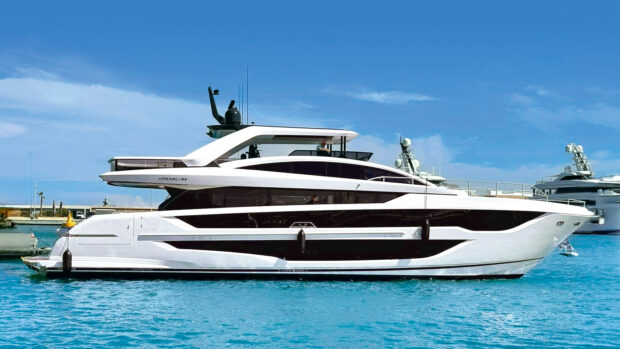Our detailed guide to European destinations.
EU member?
Yes.
Visas?
No.
Ship’s papers
Ship’s registration papers
Proof of VAT status.
Crew papers
Passports.
Skipper must have ICC.
Report to Customs?
An EU boat arriving from an EU country is not required to report to customs, and transit logs are optional, but some harbourmasters have yet to catch up with EU rules, so it’s as well to enter Greece by a port of entry and get yourself a transit log.
If arriving from a non-EU country, fly the Q flag and check in at a port of entry (see almanac for these).
Special regulations
Your boat should have holding tanks or a biological treatment plant (although many Greek boats don’t). Go at least six miles offshore before pumping out holding tanks. Greek boats flush sea toilets in harbour but don’t follow suit as you risk being fined.
If lending or borrowing a non-Greek flagged boat without the owner on board, you should register the boat on the Small Ship’s Register in the joint names of owner and borrower. If you don’t, the authorities assume it has been chartered, which is illegal for non-Greek boats.
Scuba gear may be of interest to Customs, as scuba-diving is banned in many places.
Corinth Canal
Costs around £40-100 one-way, depending on size of boat (a 39ft (12m) boat costs £40). Traffic is strictly regulated and the Canal is closed on Tuesdays between 0600 amd 2000 for maintenance. Call on VHF Ch 11 for permission to enter.
Diesel
Readily available. In harbours often delivered in a small tanker. Ask at the port office.
Shore power 220V AC
At marinas and a few harbours.
LPG
Not widely available.
Camping Gaz
Readily available.
Water
Readily available, usually for a small fee.
Berthing fees
Marinas can be expensive. Harbours are often free, or extremely cheap.
Currency
Drachma (100 leptae).
Credit cards
Widely accepted. Cashpoints in most towns.
Eurocheques
Can be changed in banks and post offices.
Travellers cheques
Can be changed in banks and post offices.
Emergencies VHF
Hellas Radio and coast radio stations monitor Channel 16. Many harbours have patrol/rescue boats. Navy craft and rescue helicopters can be called into service.
Emergencies phone
Police Central Athens and rest of Greece 100
Athens suburbs 109
Ambulance If near hospital 166. Otherwise call 100 for police
Tourist police 171
Fire 199
Pets?
Yes. Dogs and cats must have certificate of health. Must have proof of rabies injection at least 15 days and not more than 1 year previously.
Dialling code to UK
0044 then the number, omitting the first 0.
Telephone boxes
All phones are theoretically capable of international dialling but many fail to connect. Buy phonecards (tilécarta) from kiosks (periptero).
Weather forecasts
Call Hellas Radio on Ch 16, or local Port Police (see Greek Waters Pilot for channels) and ask for a weather forecast in English. Greek national radio broadcasts forecasts in Greek, then English at 0630 local time on 729kHz or 1494kHz. If you’re in a cafe at 2130, you may see a weather chart on Greek TV.
Charts and books
Admiralty charts.
Greek Waters Pilot. Rod Heikell. Imray.
Mediterranean Almanac, Imray.
www.ybw-books.com
Trailing
Skipper must have ICC.
British Embassy
1 Ploutarchou Street, 10675 Athens. Tel: 0030 1727 2600. Visit www.british-embassy.gr or e-mail britania@hol.gr
Tourist office in UK
Greek National Tourist Organisation, 4 Conduit Street, London W1R ODJ. Tel: 020 7734 5997. Visit www.gnto.gr or e-mail info@gnto.gr
Language
Greek.
September 2001








